Listening for the Perfect Story with Bill Healy (C’05)
Bill Healy (C’05) tells authentic, human stories. It’s a craft that he’s honed over the past two decades as a journalist and educator in Chicago.
Read Bill’s Story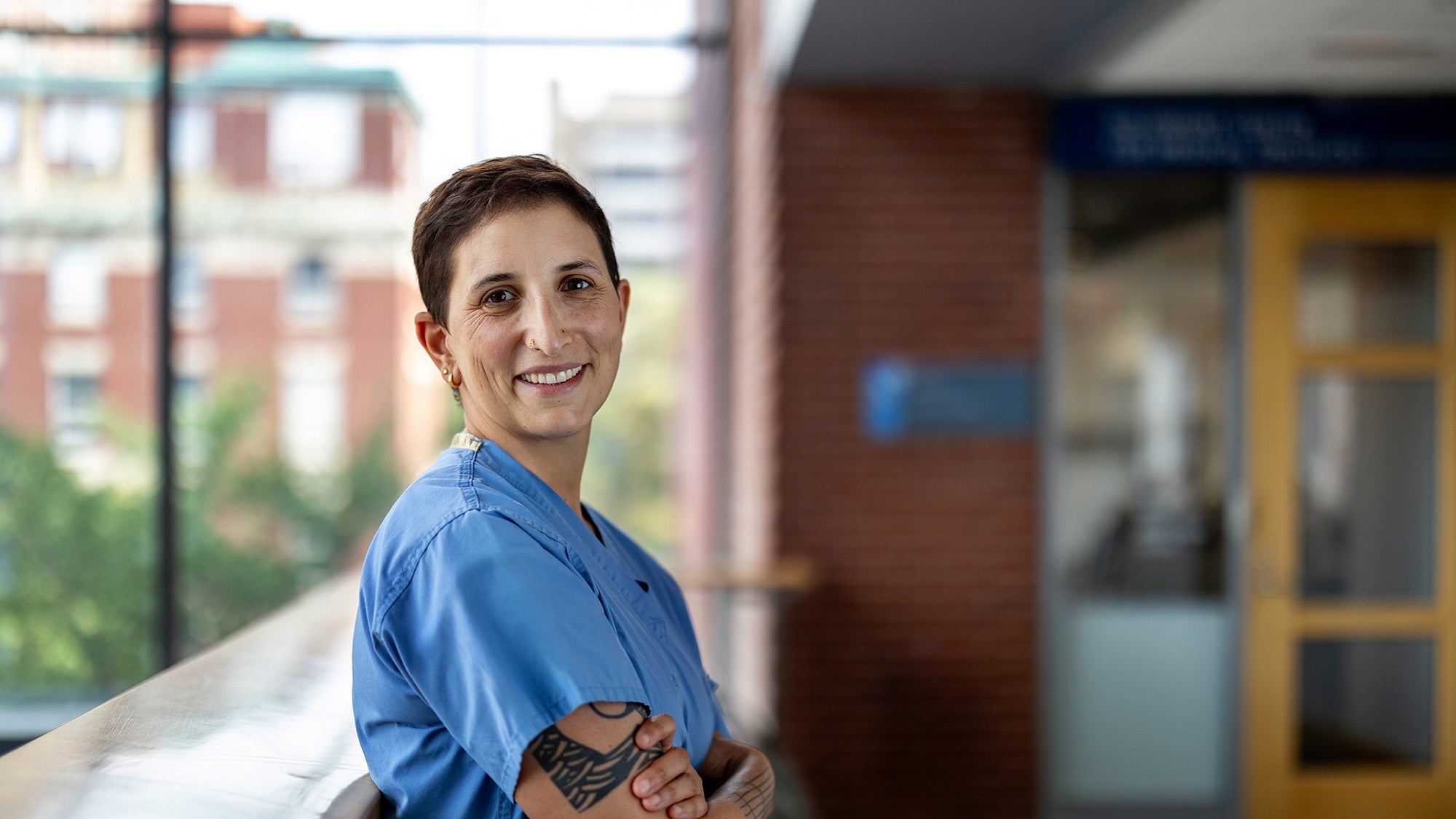
In 2014, Dr. Rasha Khoury (C’04) traveled to Sierra Leone to provide emergency obstetric care with Doctors Without Borders, the aid organization known for providing medical care in precarious contexts around the globe.
Just weeks into her two-month assignment, the worst Ebola outbreak in history began to ravage the country.
“Sierra Leone was my first time confronting what a high maternal mortality rate actually means – not on paper but in real life,” said Khoury. “There, I lost anywhere from one to two women a week. Witnessing any death is devastating, but more so when it’s from something that’s completely preventable or treatable, whether it’s hemorrhage or high blood pressure or infection. These pregnancy complications are compounded by lack of access to treatment facilities, medications and trained staff”.
A decade later, Khoury has been on six assignments with MSF, an acronym of the organization’s French name, Médecins Sans Frontières. Throughout each assignment, her dedication to solidarity alongside communities affected by war, political upheaval and catastrophe has remained constant. This year, she was elected president of the MSF USA board of directors, a position which allows her to contribute to the organization as a whole.
“I think of service not as doing something for others but as doing it with them, in accompaniment and solidarity, informed by their values and desires,” said Khoury.
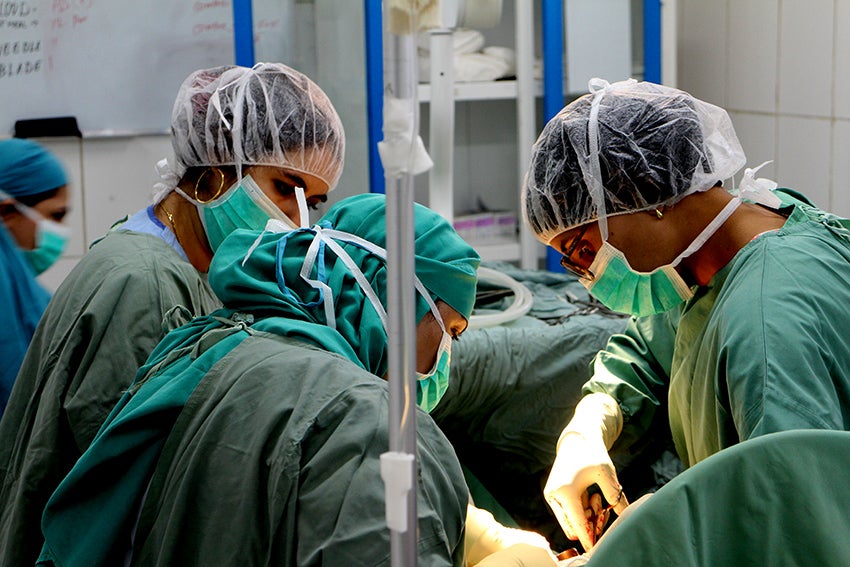
Dr. Khoury in an operating room in Khost, Afghanistan.
As a child in East Jerusalem, Khoury’s desire to pursue a life of service was kindled by both her family and her surroundings.
“I was raised by two political activists and human rights journalists, and by my grandmother, who was a social worker in Palestine,” said Khoury. “Education was drilled into me as a tool of liberation and emancipation for communities. Tied to my family’s reverence for education was also a reverence for solidarity and service, not in the sense of charity, but in collaboration and community.”
Khoury noticed the very real needs of her community and how organizations like MSF were able to cut through political red tape to deliver much-needed help.
“Part of the reason I pursued medicine was to work with organizations like Doctors Without Borders,” said Khoury. “I had been around them as a person from the affected community that they were serving — Doctors Without Borders has been in the Occupied Territories for decades.”
That desire to be in service to others brought Khoury to Georgetown, where for the first time she took classes in English and became acquainted with students and faculty members from a myriad of backgrounds.
“Georgetown was really my introduction to the United States,” said Khoury. “I worked hard to attend college in the United States because I knew I wanted to pursue a liberal arts education but with an interest in science and, ultimately, an interest in medicine.”
The shift, from classes in Arabic at a K-12 school in East Jerusalem to an English-speaking research university in Washington, DC, was a monumental one for Khoury.
“I arrived at Georgetown as a 17-year-old student and it was completely other worldly, in terms of culture, language, and social dynamics,” said Khoury. “Those were critical years of learning to understand the different backgrounds and upbringings that brought all of my peers to Georgetown.”
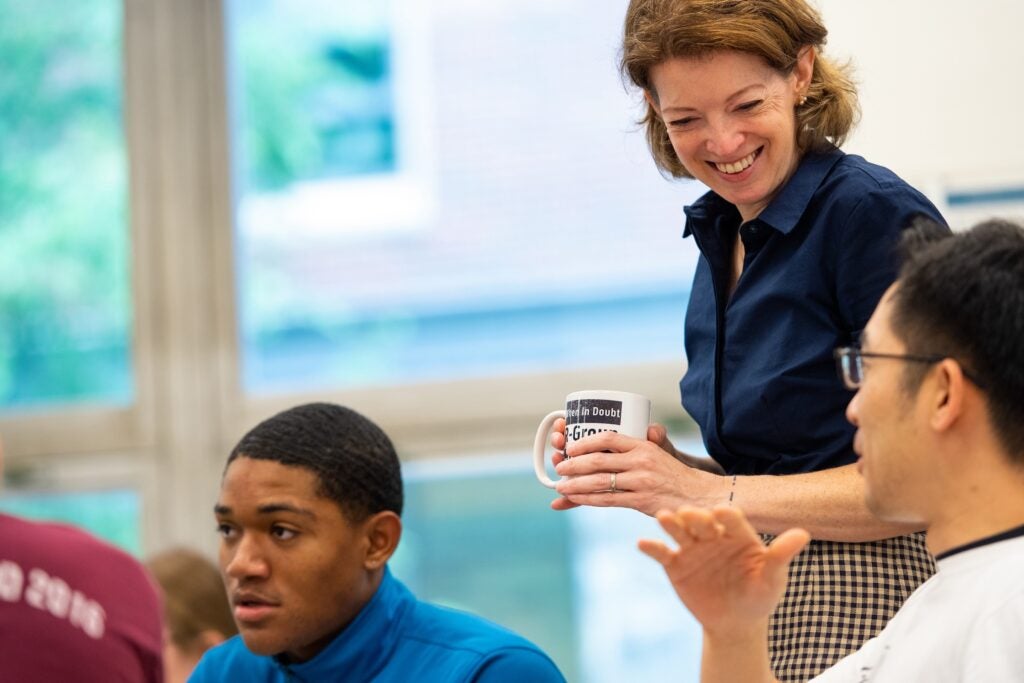
Professor Elmendorf in the classroom with two students in 2017.
“It was a difficult transition and a very transformative one — it catapulted me to some of my subsequent studies and career directions and also shaped the health worker that I am today.”
Khoury, a biology major, found solace and community in Heidi Elmendorf’s lab.
“Professor Elmendorf’s class saved me,” said Khoury. “The transition to learning in English was challenging and being in a class that was working with participatory learning, supported by teaching assistants, supported by labs, and supported by all these outside-of-the-box ways of learning was vital to my success.”
After her first class, Khoury was hooked. For Elmendorf, the memory of having Khoury in the classroom is still fresh.
“I met Rasha back in August 2000. That’s 24 years ago and the beginning of my second year at Georgetown, and yet I recall quite clearly our first conversations,” said Elmendorf. “I knew then that she was something special — brilliant, creative and passionate. She evinced a hunger for knowing ‘why’ and ‘how’ — never settling for my first answers.”
Over the subsequent years, Khoury took several classes from Elmendorf and eventually worked in her lab during both the academic year and over the course of several summers.
“Professor Elmendorf’s classes helped me build confidence, networks and skills that empowered me to succeed in other science classes,” said Khoury. “And then pursue medical training — I really think that if I hadn’t been absorbed in that creative way of learning and teaching then I probably would not have been able to apply and then be accepted into medical school.”
For Elmendorf, watching Khoury’s career bloom since graduation has been a joy.
“I watch Rasha’s career now with awe. It is astonishing to me all that she has accomplished — often under the most difficult of conditions,” said Elmendorf. “And yet, I knew that about her from the beginning. She was under tremendous pressure at Georgetown, working to balance a demanding curriculum with the stresses of her family’s struggles half a world away.”
“I came in more than once in the morning to find that Rasha had run another multi-hour experiment overnight testing the effect of drugs on Giardia and simply catnapped in the lab between timepoints. All my admonitions to go home to sleep met with a stubborn insistence that she could do that later but she simply couldn’t wait to see the experimental results.”
For the faculty at Georgetown, Khoury’s time on the Hilltop, and her career since, have exemplified the values that define the school and community.
“We often talk about college as a time of growth. That’s as true for professors as it is for students, and one of the great joys about teaching at Georgetown is how many of my students have helped me to grow,” said Elmendorf. “Even now, in my 26th year at Georgetown, Rasha stands out as a pivotal person in my development as a professor, scientist and human being. Her life’s work embodies our motto of cura personalis, and I still look to her to keep learning more about our world and how we each can best serve others.”
Khoury traveled up the East Coast to New Haven, Connecticut, where she attended the Yale School of Medicine. There, she saw firsthand the need for equitable access to health care.

Dr. Khoury with colleagues in Sierra Leone in 2014.
“In medical school, it was jarring to see that depending on a patient’s background they get access to different levels of care within the same health system,” said Khoury. “It was the first time that I witnessed that where I was part of the system, with a patient in front of me and it became important to me to try and understand the structural reasons behind these disparities. I don’t think these disparities are innate to people, but are a systemic byproduct of the way that we have created societies.”
In medical school, Khoury worked at both the Yale Center for Asylum Medicine and the Community Service Network, which provides services to those experiencing houselessness. Khoury completed her residency training in obstetrics and gynecology at the University of California, San Francisco (UCSF).
“I sought out training at UCSF because they have a strong reproductive justice framework to women’s health,” said Khoury. “My training involved learning how to think about and advocate for access to safe abortion care, safe pregnancy and birth care and safe living spaces to raise healthy children”
“I found a deeply engaged and like-minded group there and, ultimately, had the opportunity to work with people who were coming from various communities that have been disinvested in over the years. It just strengthened my desire to work in a setting that was both acknowledging these injustices and trying to do something about them.”
After completing her residency, Khoury continued her training for two years at the Brigham and Women’s Hospital in Boston. There, she studied complex family planning and global women’s health.
On Khoury’s first assignment with MSF, in Sierra Leone, she witnessed the harsh realities of pregnancy in volatile situations and under extenuating circumstances. In the decade since, Khoury has worked in Palestine, Afghanistan, Iraq, the Ivory Coast, and Lebanon.
“In Iraq, I was in Mosul, which was under siege by ISIS for several years,” said Khoury. “When I was working there, it was being recaptured by the Iraqi government. Watching people emerge from that siege, watching how a previously robust city with a sophisticated healthcare infrastructure was now decimated with people needing to seek care from MSF was deeply painful.”
“Witnessing is both painful and powerful because when you witness you can amplify and advocate and I try to maintain hope in that advocacy on a collective level.”
Dr. Rasha Khoury (C’04)
In Mosul, Khoury saw pregnancies that were affected by the realities of war, chemicals used in weapons, toxins leached into the soil and the sheer trauma of living through armed conflict.
“One case I remember was a 16-year-old girl who came in with excessive bleeding after birth,” said Khoury. “The local team wanted to perform a hysterectomy, which would save her life but leave her without a uterus. Because MSF was there, we had the supplies and tools to preserve her uterus and save her life. Retaining her uterus was not only meaningful to her, but meaningful to her family and her social standing. Those kinds of experiences never leave you.”
Khoury spent more than a year in Afghanistan, where MSF was delivering more than 2,000 babies a month, a number that many U.S. hospitals approach in one year.
“The sheer volume of that workforce was about 400 locally-hired staff: midwives, nurse anesthetists and doctors with obstetric skills,” said Khoury. “All of those people were working in service of their community, providing care with an attention to dignity. That dignity manifested not only in quality of care, but in the inclusion of family, in freedom of movement and in access to food. It’s hard to capture how special that is anywhere but especially in unstable contexts.”
In 2019, Khoury joined the MSF USA board of directors to not only lend her expertise in a leadership capacity but amplify the voices of the patients and global staff she’d worked alongside.
“I continue to work with MSF because when we enter into a context we are clear about providing medical care to anyone who needs it. We ensure we have adequate staffing, that staff have the expertise and compensation they need to do their job well, that they have access to the life saving supplies and medications they may need”, said Khoury. “I feel that I have been able to give the highest level of care in each of those spaces and that really stands out compared to other humanitarian organizations that may be constrained financially or logistically.”
“I don’t think it would be possible to keep working for an organization like MSF if those things weren’t true because to go and witness suffering and preventable death and to feel like you’re not prepared to act would feel unethical.”
Currently, Khoury works full time as a subspecialist in maternal fetal medicine and complex family planning at Boston Medical Center, but keeps two months of her year reserved for overseas assignments with Doctors Without Borders. At Boston Medical Center, a non-profit and safety net hospital, Khoury works with communities living in poverty and forcibly displaced migrant communities who have faced seemingly insurmountable barriers to equitable care.
In May, Khoury was elected president of the MSF USA board of directors.
Cover photo by Jessica Scranton.
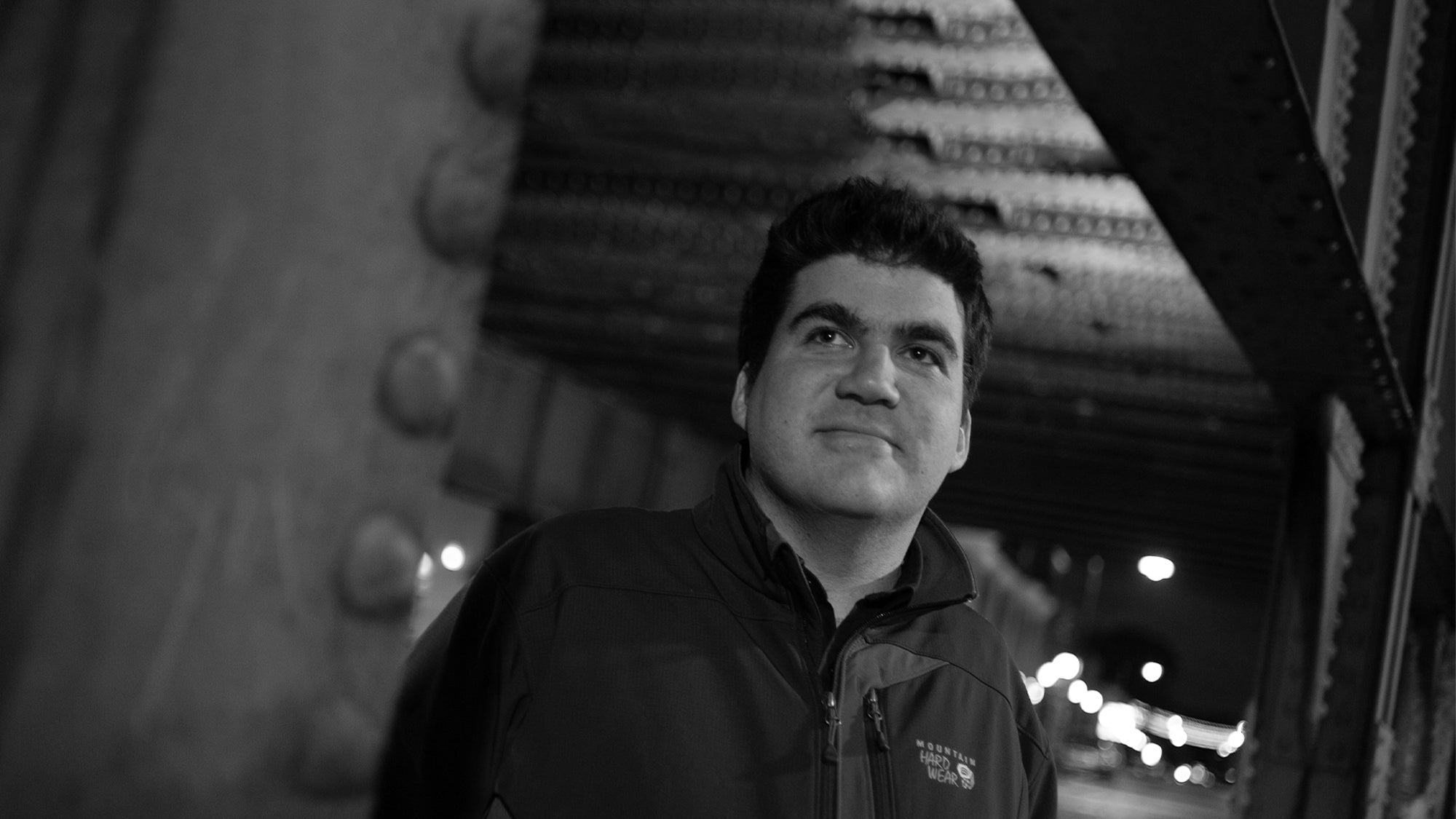
Bill Healy (C’05) tells authentic, human stories. It’s a craft that he’s honed over the past two decades as a journalist and educator in Chicago.
Read Bill’s Story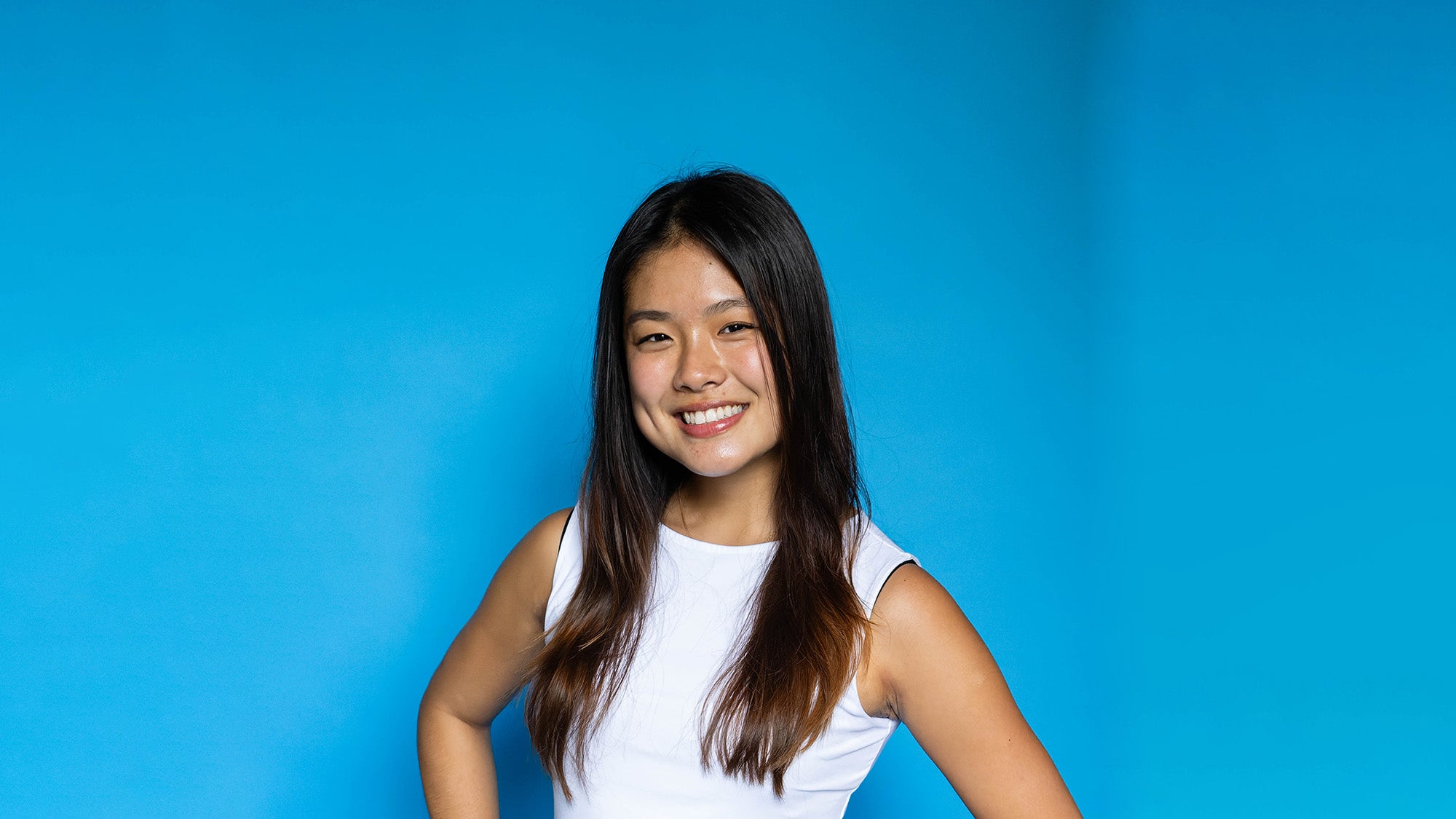
Leah Chen (C’25) travelled to Northern Thailand where she worked with researchers at Mae Fah Luang University.
Read Leah’s Story